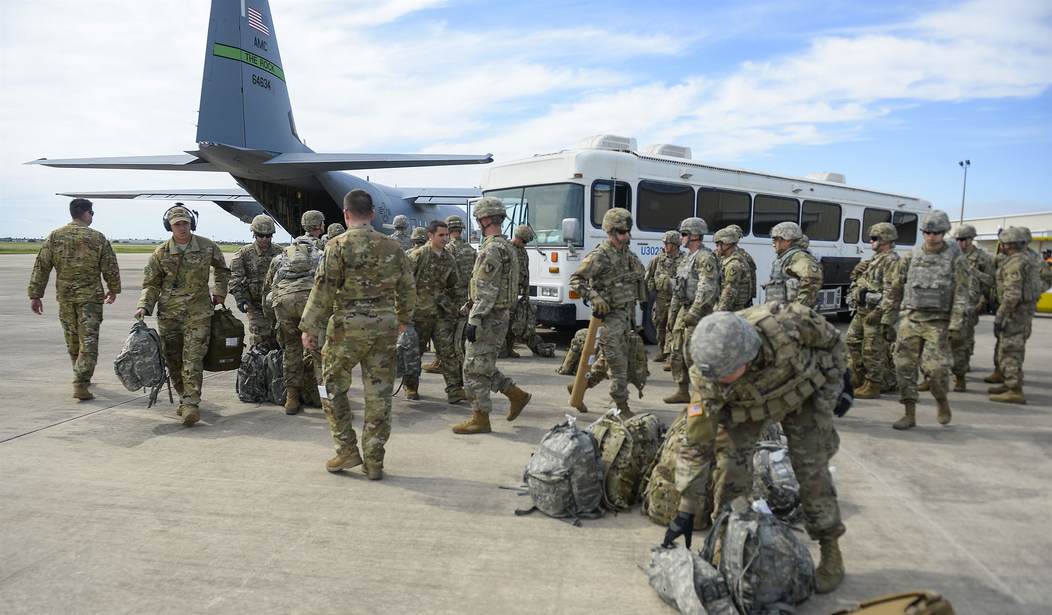The military has achieved a very high vaccination rate since the mandate from President Joe Biden was announced. Well over 90 percent of service members are now vaccinated, but that still leaves more than 30,000 who have yet to get the shots. Of those who have refused to comply, many have applied for exemptions to the mandate and are awaiting answers to their requests. Some have already been approved, generally for medical or administrative reasons. But one category of applications has been treated quite differently. Well over 10,000 members have applied for religious exemptions but, as the Associated Press reports this week, thus far not a single one has been approved. Even members of the clergy inside the armed forces are asking why that’s the case.
More than 12,000 military service members refusing the COVID-19 vaccine are seeking religious exemptions, and so far they are having zero success.
That total lack of approvals is creating new tensions within the military, even as the vast majority of the armed forces have gotten vaccinated.
The services, urgently trying to keep the coronavirus pandemic in check by getting troops vaccinated, are now besieged with exemption requests they are unlikely to approve. Meanwhile, troops claiming religious reasons for avoiding the shots are perplexed because exemptions are theoretically available, yet seem impossible to obtain.
The most frequently approved exemptions in the military have been of the medical variety. The AP spoke to a number of female service members who were pregnant when the mandate was issued and nearly all of them were granted exemptions to wait until after their babies were born and breastfeeding was complete before getting the shots. The reasons for “administrative” exemptions were more vague.
The idea of religious exemptions always seemed a bit dubious to me. With the exception of a few seriously “out there” Mormon sects, most of the established religions haven’t forbidden their followers to be vaccinated for anything. The Vatican has already approved vaccinations for Catholics and other major religions have followed suit.
But that doesn’t mean that the entire concept of one’s faith being the reason for the request is off the table. The AP spoke to one senior Army Chaplain for the National Guard who has interviewed dozens of members who requested religious exemptions. He described congregants who simply said that their faith was in God and that God would protect them, so they didn’t want the vaccine to be put into their bodies. That makes the interview process rather tricky because the Chaplains then have to determine whether this is a sincere matter of belief or just an excuse to avoid taking a vaccine that they oppose for more secular reasons. Have they refused other vaccines in the past? Those are difficult conversations for some of the Chaplains.
But even then, the Chaplain doesn’t have the final say. It’s a fact that has been both surprising and disappointing to many applicants. The Chaplain simply conducts the interview and then sends a letter up the chain of command with their own assessment. The requests are uniformly denied no matter what the view of the Chaplain was.
The Air Force has received far more requests for religious exemptions than any other branch. They originally said that requests would be processed within 30 days, but after receiving nearly 5,000 requests in a short period of time they haven’t been able to make that deadline in many cases.
This situation is likely to result in a significant rash of members leaving the military. One female member told her Chaplain that if her exemption request wasn’t approved she would be leaving the service even though it would mean that she wouldn’t have enough time to qualify for full veteran’s benefits, such as free college tuition for herself or her children. Recruitment for the Army, in particular, has been a bit slow in recent years, sometimes not achieving their target numbers. This vaccine mandate may wind up exacerbating that problem.








Join the conversation as a VIP Member